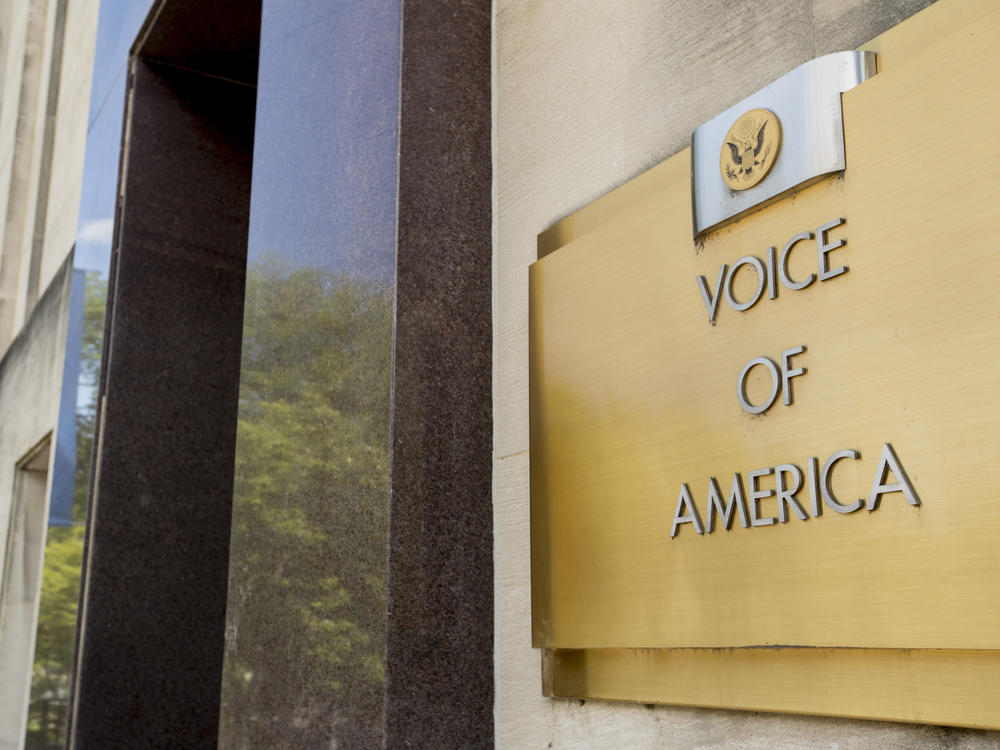Section Branding
Header Content
Foreign Journalists Working For U.S. Government Broadcasters May Lose Visas
Primary Content
Dozens of foreign nationals working as journalists in the U.S. for the federal government's international broadcasters are at risk of expulsion as the agency determines whether to renew their work visas.
The U.S. Agency for Global Media confirmed to NPR that it is examining "case-by-case" whether to extend journalists' J-1 visas once they expire. Some of the journalists who face repatriation come from countries that are notably hostile to the U.S.
"That is horrible," Matt Armstrong, a former member of the governing board over the agency, now dissolved, told NPR. "Many are likely to face repercussions, some very severe."
The foreign journalists affected by the visa decision are particularly valued for their language skills, which are crucial to the agency's mission as an international broadcaster covering news in many countries that do not have a free or robust press.
The broadcasters within the agency are Voice of America; Radio Free Europe/Radio Liberty; Radio Free Asia; Office of Cuba Broadcasting, which oversees Radio and Television Martí; and Middle East Broadcasting Networks, which runs Alhurra and Radio Sawa.
One VOA journalist, who asked not to be named because of a fear of retaliation, said the new policy could lead to the departure of more than 100 staffers in the foreign language services. USAGM broadcasts in more than 60 languages.
In a statement to NPR, a spokesperson for the USAGM said the visa review was being undertaken because of unspecified concerns of possible impropriety in the hiring process.
"To improve agency management and protect U.S. national security," the spokesperson said, "it is imperative to determine that hiring authorities and personnel practices are not misused."
The decision conforms with the Trump administration's general policy of seeking to limit work visas for the U.S. out of a stated concern that they take jobs away from Americans. The policy is opposed by many businesses that rely on the expertise of foreign employees. The USAGM typically hires citizens from other nations with both broadcast and language expertise only when it cannot hire U.S. citizens to fill the jobs.
The USAGM's new CEO, Michael Pack, in an article published this week in the New York Post, described the agency as "a non-partisan mess." The director and deputy director of VOA resigned days before Pack took office, and he dismissed the remaining heads of the agency's organizations shortly thereafter.
"Some outlets portrayed the restructuring as an ideological 'purge' of non-conservatives," Pack wrote. "But two out of the five broadcaster heads dismissed are Republicans."
Pack was appointed by President Trump, who has been harshly critical of the USAGM. In a formal statement in April, the White House claimed VOA had "amplified Beijing's propaganda" by running an Associated Press article about COVID-19 policies in China.
Trump ally and former White House official Steve Bannon, who has worked with Pack in the past on PBS documentaries, said in a 2018 interview with the Los Angeles Times, "VOA is a rotten fish from top to bottom." He added, "It's now totally controlled by the deep-state apparatus."
Disclosure: This story was reported by NPR media correspondent David Folkenflik and edited by NPR's Mark Katkov. Because of NPR CEO John Lansing's prior role as CEO of the U.S. Agency for Global Media, no senior news executive or corporate executive at NPR reviewed this story before it was published.
Copyright 2020 NPR. To see more, visit https://www.npr.org.

